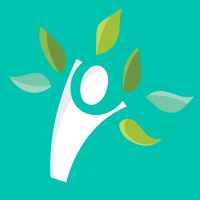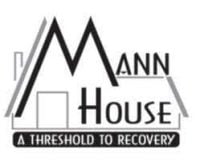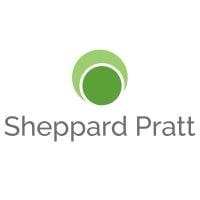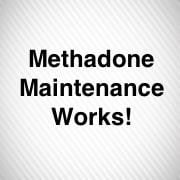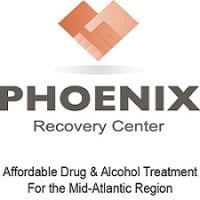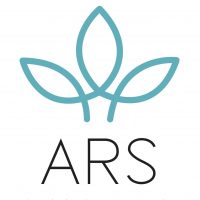Maryland Recovery
Drug Rehab Center in Bel Air, Maryland
The accredited and JCAHO-approved Maryland Recovery is committed to providing a comprehensive range of services, from aftercare support to intensive outpatient care, in a supportive environment for those looking to break free from addiction and begin their journey towards sobriety.
About This Maryland Facility
Maryland Recovery, located in Bel Air, MD, offers a unique approach to treating addiction through a long-term, personalized 90-day program. Established in 1999, this facility serves clients nationwide seeking help overcoming drug and alcohol abuse.
Their mission focuses on providing affordable recovery homes and comprehensive treatment plans tailored to each individual's needs. Maryland Recovery's commitment to accessible and effective care is evident in their approach.
Accredited by JCAHO, ensuring high-quality standards, Maryland Recovery offers various levels of care, including aftercare support, drug rehab, intensive outpatient, outpatient, and partial-hospitalization programs. Their services address the physical, psychological, and emotional aspects of addiction recovery.
- Personalized 90-day treatment program
- Affordable recovery homes
- Comprehensive, holistic approach
- Nationwide client base
Maryland Recovery specializes in treating opioid addiction, substance abuse, drug addiction, alcoholism, dual diagnosis, and mental health issues. Their integrative approach addresses co-occurring disorders often associated with addiction.
For individuals struggling with opioid addiction or alcoholism, Maryland Recovery provides a supportive environment and tailored treatment plan. Their comprehensive services aim to guide clients through the recovery process, addressing underlying issues and promoting long-term sobriety.
Genders
Ages
Modality
Additional
Accreditations

JCAHO
Conditions and Issues Treated
Rehab centers in Maryland exist to help individuals bounce back from substance abuse. Drug addiction refers to the use of illegal drugs and improper use of prescription drugs. Substance abuse includes all problems that stem out from using psychoactive substances. Centers like Maryland Recovery are here to help.
Opioids are a set of drugs prescribed for pain relief. Opioid addiction for Maryland residents refers to the compulsive seeking of opioids, even when they are not required medically. Treatment involves medication-assisted therapy in which medicines, counseling, and behavioral therapies are all utilized at Maryland Recovery.
Levels of Care Offered at Maryland Recovery
This center offers a variety of custom treatment tailored to individual recovery. Currently available are Aftercare Support, Drug Rehab, Intensive Outpatient, Outpatient, Partial-Hospitalization, with additional therapies available as listed below.
Maryland Recovery offers an Intensive Outpatient Program is for those who need intensive care but prefer to spend the majority of their time in the comfort of their own home. The rehabilitation services differ in length and intensity. They are customized to meet the needs of the patient.
An alternative choice for inpatient rehabilitation or residential services is the partial hospitalization program (PHP). Patients remain in a hospital closer to Maryland Recovery center in Bel Air, MD and spend several hours a day undergoing various therapy types. The period of treatment ranges from one to six months.
Aftercare support refers to the follow-up care provided after the initial rehab program. The quality of aftercare support plays an important role in preventing relapses and sustains recovery. Aftercare support at Maryland Recovery is personalized according to the needs of the patient in Maryland.
Therapies & Programs
Group therapy occurs in a group setting as opposed to a one on one setting. It benefits patients by providing a feeling of support and letting them know they are not alone. Patients at Maryland Recovery also learn to build trust and understanding and gain perspective through discussions.
After experiencing trauma, it’s crucial to look for a facility that can provide trauma therapy. This approach zeroes in on the traumatic incidents that a patient has encountered in the past, recent or not. It’s been widely known that trauma can make an individual resort to alcohol or other substances to mask their troubles and pain. Trauma can originate from domestic violence, sexual abuse, an early encounter with death, sexual assault, and many more. The goal of trauma therapy at Maryland Recovery in Bel Air, MD is to help the patient see beyond the trauma and move forward. Mental health professionals will facilitate the patient’s journey and see to it that he or she is no longer a victim of his or her traumatic experiences and has wholly regained his or her personal power.
DBT, also known as dialectical behavior therapy, is a form of cognitive behavioral therapy (CBT) that helps people understand how their thoughts, behaviors, and feelings all connect. This can give them more control over their actions, effectively stopping self-harm ideations and attempts in some patients. It can also help put people in control over some mental struggles, like borderline personality disorder.
Most individuals suffering from addiction have low self-awareness, so they end up making poor decisions. Cognitive Behavioral Therapy (CBT) is suitable for patients recovering from an addiction of any kind. Through it, patients become more aligned with their thoughts, emotions, and behaviors, giving them a better opportunity to respond appropriately to temptations and negative feelings.
This therapy modality at Maryland Recovery in Bel Air, MD strengthens a person’s ability to stay on top of their emotional state and learn new stress management techniques so they won’t give in to the temptations easily. Moreover, CBT helps people communicate and express their emotions well, which can be vital in relapse management. CBT is also suitable for managing co-occurring disorders like depression and bipolar illness.
Rational Emotive Behavior Therapy sees a person suffering from substance addiction to have illogical reasoning, counterproductive actions, and does not see things clearly. REBT at Maryland Recovery in Bel Air, MD deals with cognition, images, and behavior extensively to rectify the client’s bad habits. The process calls for practice, reiteration, and bolstering the new way of thinking being introduced to the patient.
When it comes to maintaining sobriety, people who quit recovery without developing life skills are disadvantaged. While teaching life skills at Maryland Recovery is difficult, support with aftercare helps patients learn these skills over time. Life skills include getting a career, living in a good environment, self-care, and finance management, all in Bel Air, MD.
A 12-Step Program is a common method that is used to treat addiction. This format is used for both drug and alcohol treatment. It is extremely popular and successful for large numbers of people. It is a relatively simple set of steps that are done continuously in order to move through life with awareness, accountability and honesty. 12-Step programs are available in most every city in the Unites States. They are available in person, electronically and virtually through phone or web-based meetings.
Contingency management (CM) is a system that rewards patients for positive behavior. Patients may get a gift for a clean drug test. They may also get punished for negative behavior. The therapy inspires patients to engage in healthy behaviors and limit unhealthy behavior. It is effective in treating addiction and other issues.
Payment Options Accepted
For specific insurance or payment methods please contact us.
Is your insurance accepted?
Ask an expert, call (888) 674-0062
Additional Details
Specifics, location, and helpful extra information.
Bel Air, Maryland 21014 Phone Number(410) 838-3442 Meta DetailsUpdated April 15, 2024
Staff Verified
What else do people call Maryland Recovery?
People have occasionally also searched for “Maryland IOP Partners in Maryland”
Patient Reviews
There are no reviews yet. Be the first one to write one.
Bel Air, Maryland Addiction Information
For the past decade, Maryland's rate of drug use and abuse has significantly increased. The overdose rate is currently higher than the national average. This epidemic is due to the many industries where manual labor is required. As soon as prescription opioids were more readily accessible a large part of manual workers started using–and eventually abusing–the painkillers.
The drug addiction problem in Bel Air, MD, is relatively bad. There were over 9,000 admissions to drug and alcohol treatment centers in 2009. Of these admissions, almost 60% were for alcohol abuse, and more than 30% were for drug abuse. The most common drugs of abuse among those admitted to treatment were heroin, marijuana, and cocaine. Relapses are common among people attempting to return to sobriety in Bel Air.
Treatment in Nearby Cities
- Prince Frederick, MD (70.0 mi.)
- Earleville, MD (24.5 mi.)
- Jessup, MD (35.1 mi.)
- Columbia, MD (35.7 mi.)
- Essex, MD (17.0 mi.)
Centers near Maryland Recovery
The facility name, logo and brand are the property and registered trademarks of Maryland Recovery, and are being used for identification and informational purposes only. Use of these names, logos and brands shall not imply endorsement. RehabNow.org is not affiliated with or sponsored by Maryland Recovery.
